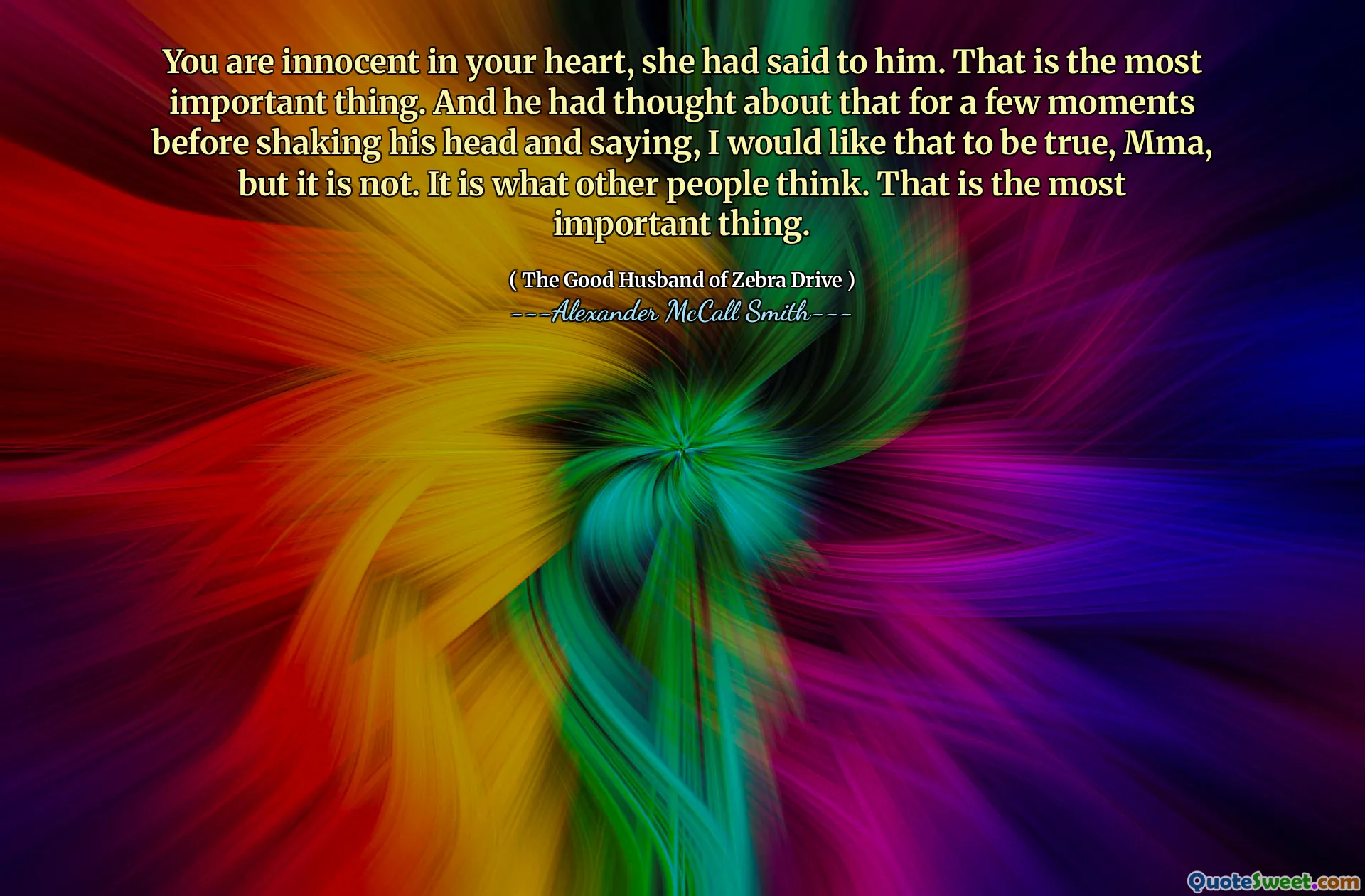
You are innocent in your heart, she had said to him. That is the most important thing. And he had thought about that for a few moments before shaking his head and saying, I would like that to be true, Mma, but it is not. It is what other people think. That is the most important thing.
In "The Good Husband of Zebra Drive," the protagonist grapples with the concept of innocence and how it is perceived by himself and others. A character, likely a mother figure, expresses that being innocent at heart is crucial. However, the protagonist reflects on this notion, feeling that innocence is overshadowed by societal opinions. His beliefs suggest that external judgments weigh more heavily than one’s internal sense of morality.
This internal conflict highlights the struggle between self-perception and how one is viewed by others. Ultimately, the protagonist seems to value the perceptions of society over his own innate sense of goodness, indicating a tension between personal integrity and external validation. This dynamic reveals broader themes of identity and societal expectations, emphasizing the complexity of human self-understanding.











